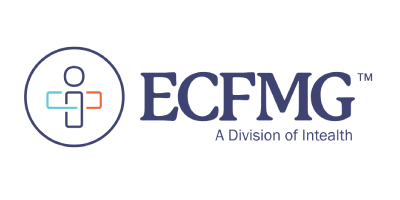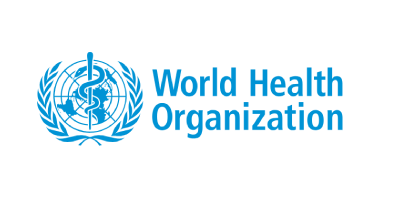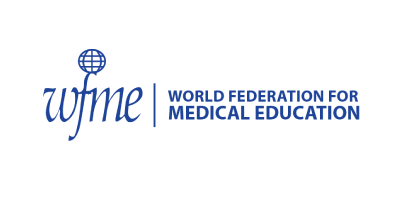Study MBBS in Georgia
Free Consultation
Study MBBS in Georgia
In the current situation, where many individuals are eager to Study MBBS in Georgia, the
country has become a preferred choice for most students. The country boasts quality
education, relatively cheap tuition fees, and internationally acclaimed medical programs, and
attracts international students interested in studying medicine. At Bethel Consultants, we are
ready to help you turn your dream into reality and guide you to study MBBS in Georgia.
Why Choose Georgia for MBBS?
Georgia has rapidly become an important higher education destination that combines new technologies, highly skilled teaching staff and low living and tuition costs. If you are
considering studying MBBS in Georgia, here's why this country should be at the top of your list:
1. Globally Recognized Degree
2. Affordable Tuition Fees
3. Modern Infrastructure
4. English-Medium Programs
5. High-Quality Education
6. Pathway to Global Opportunities
Top Features of Studying MBBS in Georgia
1. USMLE Certified Faculties
2. 6-Year MD Program
3. World-Class Education
4. Globally Recognized Degree
5. Affordable Tuition and Scholarships
6. Safe and Welcoming Environment
Top Universities in Georgia for MBBS
1. Tbilisi State Medical University
2. Batumi Shota Rustaveli State University
3. Ivane Javakhishvili Tbilisi State University
4. University of Georgia
Immigration Countries Offered at Bethel Consultant
1. Canada: Canada is very popular for its openness, and there are many ways through
which one can immigrate to Canada. For instance, immigrants can choose to
immigrate via Express Entry, PNP, and sponsorship programs. Bethel Consultant
offers advice to increase the likelihood of success to its clients.
2. Australia: Due to skills select migration and high living standards, Australia is one of
the favourite destinations for professionals. Bethel Consultant helps clients apply for
visa types like the Skilled Independent Visa, Employer Sponsored Visas and Partner
Visa.
3. New Zealand: Work, study and settlement options in New Zealand and other
information necessary for your journey to New Zealand is also provided by Bethel
Consultant. This includes Skilled Migrant Category Visa and other temporary work
visas.
4. United States: The USA still retains a privileged place in terms of business and
educational openings. Bethel Consultant assists with visa applications such as H1B,
L1, B1/B2, and Green Card applications/requests to make it smooth.
5. United Kingdom: The UK has presented various categories of visas. For people who
want to invest in the country, there is the Tier 1 Entrepreneur Visa and for those who
wish to work in the country, there is a Tier 2 Skilled Worker Visa. Bethel Consultant
assists clients in dealing with these difficult visa regimes.
6. Europe: The countries of the Schengen Agreement provide ample opportunities for
travelling and work. Bethel Consultant is able to assist customers who need a work
permit, family reconstruction visa, or study permit for several European countries.
Types of Visa Services Offered at Bethel Consulta
1. Student Visas: It also assists visa agreements to preferred students’ destination
countries such as Canada, Australia and the United Kingdom.
2. Work Visas: Bethel Consultant assists clients in securing work permits for countries
like Canada, the United States and Australia.
3. Business & Investor Visas: Our services are also valuable for businessmen and
investors who are interested in overseas business development and need help in
choosing the right visa.
4. Family & Spouse Visas: Bethel helps with family reunification, ensuring smooth
processes for obtaining dependent, spouse, or family visas.
5. Permanent Residency Visas: For those who want to stay for the long term the
company offers the needed assistance in procuring permanent residence in countries
such as Canada, Australia and New Zealand.
MBBS in Georgia Course Details
1. Course Duration: Foreign medical education in Georgia has a duration of 6 years in
which the first few years are devoted to theory and the final years to practical. The
first two years are really more or less introductory years that teach the basics of
medicine including Anatomy, Physiology, Biochemistry, and Microbiology etc.
2. Clinical Training: In the last two years the students have participated in clinical
experience in the affiliated hospitals and health care institutions. This assists the
learners in practicing and implementing their theoretical practice in real life medical
environments. Most clinicals are done from the third year up to the final year of the
degree program.
3. Subjects Covered: The subjects taught in MBBS in Georgia are human anatomy,
physiology, biochemistry, pathology, pharmacology, microbiology, community
medicine, forensic medicine, surgery, obstetrics & gynaecology, paediatrics, and
internal medicine. This is in order to achieve the curriculum delivery goal of
providing balanced medical education for students.
4. Language of Instruction: The MBBS program in Georgia is delivered in the English
language in addition to Georgian. However, most of the foreign students from India
have a greater preference for the English medium courses which are offered in
renowned universities like Tbilisi State Medical University and David Tvildiani
Medical University etc.
5. Recognition: The degree is recognized internationally, and it is accepted by the
WHO, as well as the MCI in India. The pass-outs can directly appear for the MCI
Screening Test known as Foreign Medical Graduate Examination (FMGE) to practice
in India or go for higher education abroad.
MBBS in Georgia for Indian Students Eligibility
1. Educational Qualifications: Applicants must have passed 12th standard/Higher
Secondary examination from any recognized board/institution in India with not less
than 50% marks in PCB (Physics-chemistry-biology). High school leavers should
have covered English as a subject in their course work at high school.
2. NEET Qualification: National Eligibility cum Entrance Test (NEET), which is
NEET is compulsory to qualify for Indian students to pursue MBBS in Georgia.
Normally, 120-130 NEET marks of 720 are deemed as the minimum cut-off marks
but it may differ from university to university. The final score of the NEET confirms
that its holders will be capable of getting admission to a foreign medical university.
3. Age Limit: Admission to the program is open for students who are 17 years and
above but not more than 25 years. Of course, the age may differ from university to
university, but this is the most common age range.
4. English Proficiency: Even though the language for learning throughout MBBS
program in India is English, a student might be called for an English proficiency test
when applying to a Georgian medical institute. IELTS or TOEFL may be necessary, at
some universities, to prove the students’ English proficiency.
5. Medical Fitness: It is a necessary condition that students who want to enter medical
institutions should be healthy both physically and psychologically. There may be a
medical certificate to prove a person’s fitness. Indian students can apply for a Georgia
student visa to study in Georgia. The visa application procedure is usually
accompanied by an invitation letter from a university, evidence of funds for living
expenses, and a medical certificate. India or pursue further studies abroad.
MBBS in Georgia Admission Process
1. Eligibility Check: The first step therefore requires the student to meet other
requirements such as completion of 12 with the requisite subjects and the NEET test.
Joy has mentioned, the requirements can be slightly different in each university, so, it
needs to be checked with the university in question.
2. Application Submission: The next step after confirming one’s eligibility is to submit
an application. In most cases, it requires the completion of an online application form
found on the university’s website and other documents such as certificates and
transcripts, NEET score slip, passport photo, and medical certificate among others.
3. Acceptance and Invitation Letter: When the application is received, the university
will write to the student either an offer letter or an invitation letter. A student visa can
be obtained using this letter.
4. Visa Application: When a student receives the invitation letter, he/she has to apply
for a student visa from the Georgian embassy or consulate in his/her home country. In
the visa application, the student is required to provide details corresponding to the
invitation letter, his/her passport, medical certificate, proof of financial support as
well as recent photographs.
5. Fee Payment: After a student gets the visa, he or she is required to pay the tuition
fees for the first semester/year and some other amount for the hostel accommodation
and other related charges.
6. Travel to Georgia: After getting the visa students can come to Georgia and continue
registration at the chosen university. After arrival, the learners have a prescribed
orientation and they start attending classes.
Documents Required for MBBS in Georgia
The following documents are typically required for Indian students to apply for MBBS in
Georgia:
1. Passport: The visa and travel require a passport that must be valid for the next
eighteen months at least.
2. 10th and 12th Mark Sheets: Xth & XIIth student certificates and mark sheets of the
student. These documents need to be certified by the corresponding education boards.
3. NEET Scorecard: A scanned copy of the NEET scorecard in which the qualifying
marks of the student have been mentioned.
4. Birth Certificate: Documents which show the student’s age and true identity, such as
the birth certificate are essential.
5. Passport-size Photographs: In most cases, between 6 to 8 passport-sized
photographs are expected when filing applications and visas.
6. Medical Fitness Certificate: Original medical certificate from a gen Slovenia
practitioner which confirms that the student is physically, and mentally and that he is
capable of pursuing medicine.
7. Recommendation Letter: A few universities might insist on getting a letter of
recommendation from the teacher or the principal.
8. Financial Proof: Personal documents that will demonstrate their financial eligibility
to fund education and day to day life in Georgia. These may be bank statements,
affidavits or financial support letters.
9. Visa Application Forms: The duly filled application forms for visa, and the receipt
of the visa fee paid.
Frequently Asked Questions
- How much does MBBS cost in Georgia?
The expenses for the MBBS in Georgia differ from university to university. The cost of studying MBBS program in Georgia varies from $ 4000 to $ 7000 per year. This statistic is rather low as compared to many of the Western countries, thus making Georgia an inexpensive country for medical learning. Apart from tuition fees, costs such as living costs will be charged; for a student with a frugal lifestyle living in a shared house or hostel, the living cost will be between USD 200 to 300 and for a more flamboyant student living alone in a more comfortable house, it will be between USD 300 to 400.
- What is the NEET score required for MBBS in Georgia?
Indian students who want to undertake MBBS in Georgia must produce a NEET (National Eligibility cum Entrance Test) examination clearance. The minimum and maximum NEET score for Georgia commonly differs based on the university and adjacent admission criteria. However, according to our observation, most of the Georgian universities expect students to have a NEET score range of between 120 – 130/720 to be considered for MBBS programs. While overall average CGPA usage is very high among universities, students must read the requirements because some universities have higher or lower CGPA thresholds.
- Is MBBS better in Georgia or India?
The comparison of MBBS in Georgia or in India can be decided on some points such as cost, experience and scope of the course. Evaluating MBBS in Georgia has become common nowadays because of its low cost, quality educational system and global acceptance of the degrees. However, the number of medical colleges in India is also growing, yet competition is high and it can be expensive in private colleges. On the other hand, Indian students may prefer to study in India because they are familiar with the system, culture and language. Lastly, for students searching for a cheaper way to undertake their medical studies, Georgia is a suitable choice while for those who seek studies within the country, India is a favourable choice.
- Is the MBBS syllabus the same in India and Georgia?
Yes, the MBBS syllabus for Georgia and India is comparatively similar because both the country follows the international level syllabus of MBBS course. However, the actual details of delivery of curriculum might bare a little variation from the above described one. The subjects taught by medical schools in both countries supplement the basic medical principles comprising of anatomy, physiology, biochemistry, pharmacology, pathology and clinician skills. Despite the fact that many Indian medical universities are accredited to the Medical Council of India (MCI) standard, Georgian universities are in most cases up to the European Union standards. Nevertheless, graduates of both these countries are required to clear a license exam in India (like FMGE – Foreign Medical Graduate Exam) to practice in India.
- Which is the best university for MBBS in Georgia?
Georgia has several universities that offer high-quality MBBS programs. Some of the top universities for MBBS in Georgia are:
- Caucasus University Tbilisi
- Tbilisi State Medical University
- Batumi Shota Rustaveli State University
- University of Georgia.
- David Tvildiani Medical University
These universities are known for their excellent faculty, well-equipped medical facilities, and recognition by international medical bodies.
- How can an Indian student get into Georgia Tech?
To get into Georgia Institute of Technology (Georgia Tech), an Indian student must follow a few essential steps:
- Eligibility: For admission to undergraduate programs the candidate should have passed the 12th standard (Higher secondary education) with good grades, especially in biology and science for medical fields. Applicants to the post-graduate programs should possess a relevant bachelor’s degree.
- Standardized Tests: Approximately all students applying to be undergraduates have to produce their SAT or ACT scores, while the graduate applicants should produce their GRE or GMAT scores in accordance with their departments.
English Proficiency: Additionally, since the medium of instruction in Georgian medical universities is English, Indian students are required to produce a TOEFL or IELTS test score.
- Application Process: The application of students is done online and requires the clearance of the university and program, and documents, such as academic transcripts, test scores, letters of recommendation, and, often, the personal statement, and other documents relevant to the program of the student.
Visa: Upon enrollment, students require a valid student permit authorized by the consulate of Georgia.





